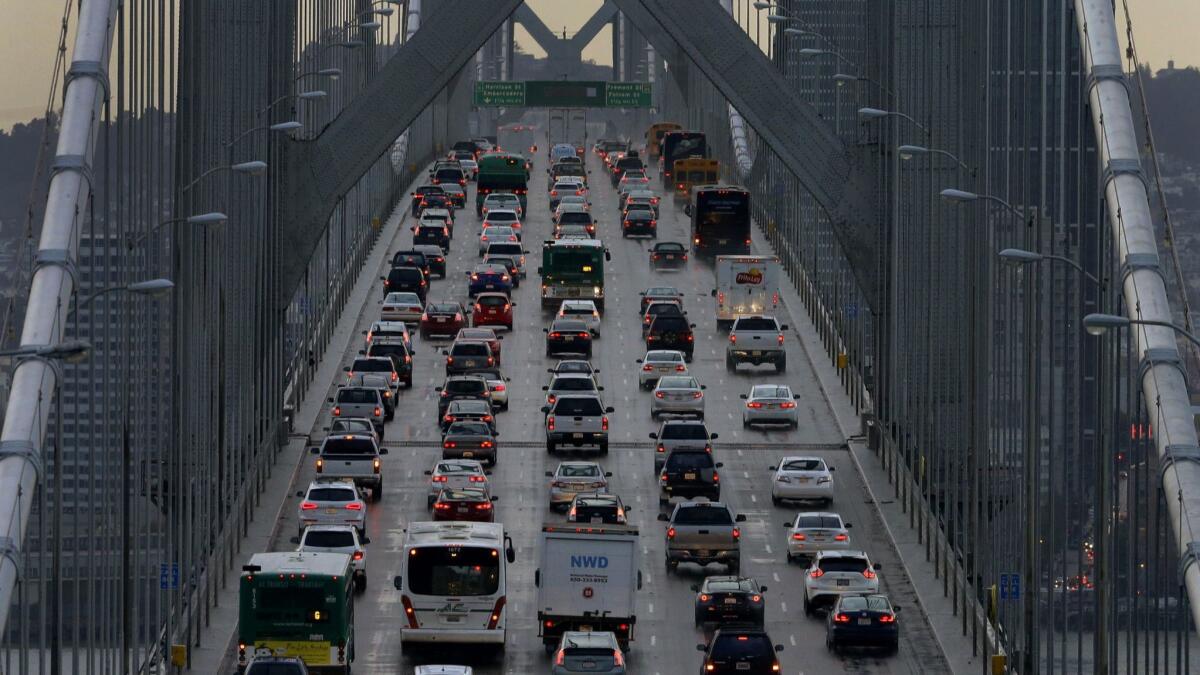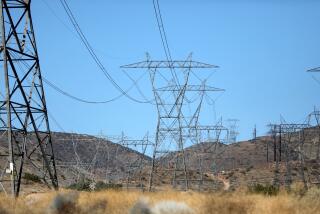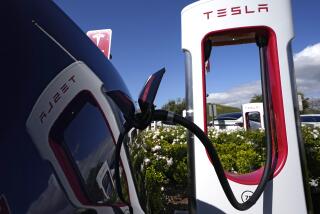Editorial: A carbon tax is a good idea — so long as it doesn’t come with industry handouts

Exxon Mobil made a bit of a splash Tuesday when it announced a $1-million, two-year donation to the Republican-led Americans for Carbon Dividends, an organization pushing for a national tax to help curtail emissions of atmosphere-warming carbon. A carbon tax is aimed at making the burning of fossil fuels — which releases carbon — more expensive, and thus directing consumer behavior away from carbon-spewing energy and driving investment toward carbon-free alternatives. It’s a sound approach, one this page endorsed more than a decade ago, and better than the related cap-and-trade plans, which California has used since 2012.
But the plan that Exxon Mobil is throwing its money at — pocket change, really, for a corporation that made nearly $20 billion last year — is less than it seems. Called the Baker-Schultz plan after two of its authors, former Republican secretaries of State James A. Baker III and George P. Schultz, the plan calls for gradually increasing the per-ton carbon tax to reduce the risk of market shock, and for returning the proceeds to consumers on a per-capita basis through the Social Security Administration. Everyone gets the same amount of cash, but those who use less carbon-emitting energy will pay less tax — giving them a powerful incentive to conserve. So far, all good. And a set rate helps companies better anticipate their costs; businesses like stability and predictability.
But there’s always a but, it seems. The Baker-Schultz plan also includes a waiver that would let oil companies and other emitters off the hook for past acts contributing to global warming, preempting the many lawsuits filed against them. And it would undo the Clean Power Plan and other federal regulations covering carbon dioxide emissions. That makes this sound less like a smart plan to reduce carbon than a toxic quid pro quo — “OK, we’ll go for a carbon tax if these lawsuits go away and we get sharper deregulation.” Another plan, pushed by the Citizens Climate Lobby and other groups, would similarly escalate the per-ton tax over time and return the proceeds in a per-capita dividend, without the corporate giveaways. That’s a better option.
A carbon tax is aimed at making the burning of fossil fuels — which releases carbon — more expensive.
Whatever approach might ultimately gain traction, it will be a useless gesture unless the tax is sufficiently high to compel changes in producer and consumer behavior. How much is too little? How much is too much? We’re not going to pretend we know — there are experts who can make that calculation. But this is an area in which compromise isn’t much of an option. As the recent Intergovernmental Panel of Climate Change warned, without near-immediate and drastic action to curtail the rise of carbon and other greenhouse gases in the atmosphere, mankind faces a dire environmental future. Rising seas, more severe weather patterns — a lesson just reinforced by Hurricane Michael — deep agricultural impacts and worse droughts and flooding.
We’ve known about this problem for decades. Swedish scientist Svante Arrhenius predicted nearly 120 years ago (building on earlier work by Irish-born scientist John Tyndall) that warmer temperatures would follow increased levels of human-generated atmospheric carbon. Over the subsequent few decades scientists recorded changes in carbon levels, and by the early 1970s there were international calls for research into the phenomenon. The world — particularly the industrialized world — has known this reckoning was coming yet has done little more than wave at it. It’s like a homeowner who ignores the leak in the upstairs bathroom until the house’s structural integrity begins to get compromised. Well, the bones of this building are weakening.
Enter the Fray: First takes on the news of the minute from L.A. Times Opinion »
The problem confronting us is that understanding the threat and the available solutions — both technological and behavioral — does nothing for us unless we find a way to overcome the enormous political hurdles posed by self-interested polluters, self-centered consumers and the climate skeptics controlling the levers of government. The science and the already evident effects of global warming haven’t moved the needle on global action enough to stop the needle on the global thermometer.
It might be tempting to sigh and give up, but that would be just as foolish as continuing the disastrous policies that are imperiling the health of the very environment that makes life possible. There’s an adage that “it’s an ill bird that fouls its own nest.” If so, we’re some rather sick birds.
Follow the Opinion section on Twitter @latimesopinion or Facebook
More to Read
A cure for the common opinion
Get thought-provoking perspectives with our weekly newsletter.
You may occasionally receive promotional content from the Los Angeles Times.






